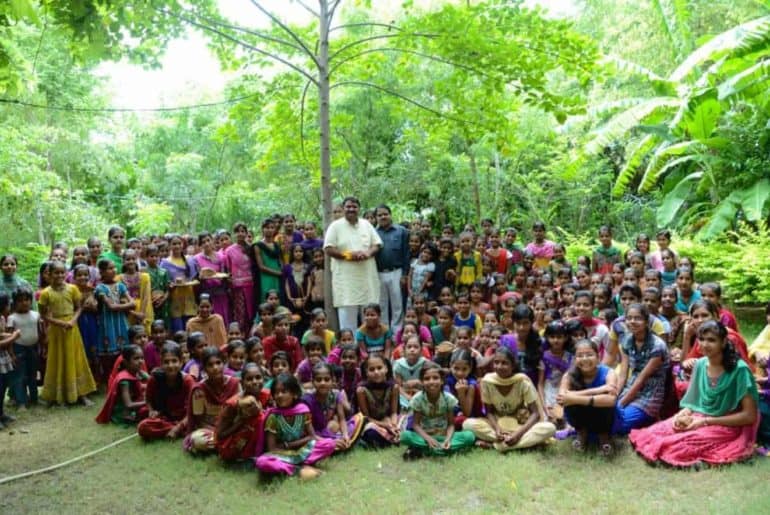In Rajasthan, a state often characterised by low sex ratio and an arid climate, the villagers of Piplantri in Rajsamand have resorted to planting 111 trees with the birth of every girl child to battle female foeticide and climate issues.
In Piplantri, whenever a girl child was born, the family pushed a hard, jagged grain into her mouth to cause infection and ensure her death. Shyam Lal Paliwal never understood this practice.He had always loved his daughter. So when Sarpanch Shyam Lal Paliwal’s 16-year old daughter Kiran died in 2006, he planted a burflower tree in her remembrance and vowed that no one would mourn the birth of a baby-girl in Piplantri anymore. Instead, it would be celebrated with the planting of trees.
Before 2005, Piplantri had been a drought-prone area. Shyam Lal recalls that once in 2005, the drought had been so bad that the government were forced to send water trains to the village. But it all ended with Kiran’s tree and Shyam Lal’s vision.
Alongside planting 111 trees, whenever a girl child is born in Piplantri, donations are collected so that INR 31,000 can be saved and put aside, so that with investment, there is a sum to match a potential dowry, allowing the families to become financially independent and in turn, be able to send their daughters to school, not marry them before they turn 18, and care for the planted trees as well. Along with this, getting inspiration from his wife, Shyam Lal also helped establish an aloe vera business in the village. After training, women can make and market aloe vera gel, juice and pickle, and some earn up to INR 6,000 a month. The Sarpanch has also started a rainwater harvesting plant in the village.

image Credits: Lifegate
The government of Rajasthan, which has been shamed with a concerning sex ratio for years, decided to introduce a yojana (scheme) inspired by Paliwal’s work. Under the policy, the family receives INR 2,500 on her birth and the same amount on her first birthday. This is doubled to INR 5,000 if she finishes class five and class eight. When girls complete their senior secondary education i.e. class 12th, they get INR 35,000, making an overall total of INR 50,000.
Piplantri has become an inspiration to various villages in rural India and holds itself up to be an important symbol of not only women empowerment, but also sustainable development in India.
Feature Image Credits: Procaffenation
Shreya Juyal

